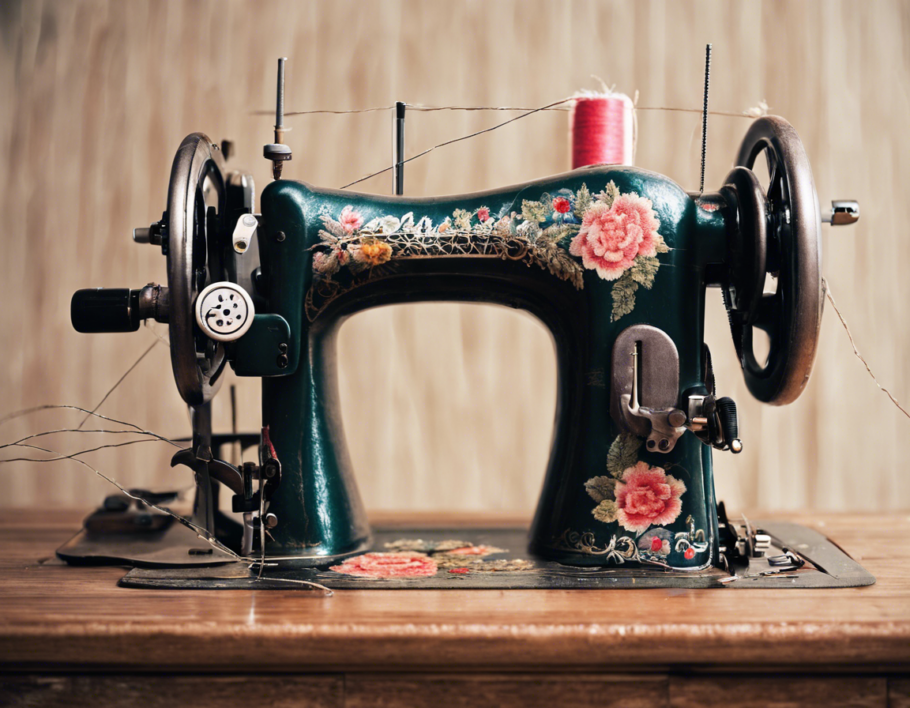Sewing machines are essential tools for anyone who loves to sew. Whether you use your machine occasionally or on a daily basis, it’s crucial to keep it in top working condition to ensure smooth operation and longevity. Proper sewing machine maintenance can prevent costly repairs and keep your machine running efficiently for years to come. Here are 5 essential sewing machine maintenance tips to help you care for your equipment:
Tip 1: Regular Cleaning
One of the most crucial aspects of sewing machine maintenance is regular cleaning. Dust, lint, and stray threads can accumulate in the bobbin area, feed dogs, and tension discs, causing the machine to jam or sew unevenly. Clean your sewing machine after every few projects or at least once a month if you use it frequently. Use a small brush, a lint roller, or canned air to remove debris from hard-to-reach areas. Don’t forget to oil your machine regularly as recommended by the manufacturer to keep it running smoothly.
Tip 2: Proper Threading
Proper threading is essential for the optimal performance of your sewing machine. Always refer to your machine’s manual for specific threading instructions as machines can vary. Incorrect threading can lead to thread breakage, uneven stitches, or even damage to the machine. Make sure the presser foot is raised when threading the upper thread to ensure the thread is properly seated in the tension discs. Additionally, use the right needle and thread for your fabric to prevent unnecessary strain on the machine.
Tip 3: Adjusting Tension
Adjusting the tension on your sewing machine is crucial for achieving balanced stitches. If the stitches are too loose or too tight, it may be a sign that the tension needs to be adjusted. Start by rethreading the machine with the presser foot raised, as mentioned earlier. Test your stitches on a scrap fabric and make adjustments as needed. Remember to always make small tension adjustments and test the stitches again before making further changes.
Tip 4: Needle Maintenance
The needle is a vital part of your sewing machine, and a dull or bent needle can cause skipped stitches or damage to your fabric. Check your needle regularly for any signs of wear and replace it as needed. It’s recommended to replace the needle after every 8-10 hours of sewing, especially if you are working on heavy fabrics or using the machine extensively. Using the correct needle size and type for your fabric can also prevent issues like puckering or missed stitches.
Tip 5: Professional Servicing
While regular maintenance can keep your sewing machine in good working order, it’s essential to invest in professional servicing at least once a year. A skilled technician can deep clean your machine, lubricate moving parts, and identify any potential issues before they become major problems. If you notice unusual noises, stitch irregularities, or if your machine is not performing as usual, it’s time to take it for servicing to prevent further damage.
By following these sewing machine maintenance tips, you can prolong the life of your machine and ensure that it operates smoothly for all your sewing projects. Remember that proper care and attention to your sewing machine will save you time, money, and frustration in the long run.
Frequently Asked Questions (FAQs)
- How often should I clean my sewing machine?
-
It is recommended to clean your sewing machine after every few projects or at least once a month if you sew regularly.
-
Can I use any type of oil for lubricating my sewing machine?
-
No, it is best to use oil specifically designed for sewing machines to avoid damaging the internal components.
-
Why is proper needle maintenance important?
-
Proper needle maintenance ensures smooth stitches, prevents damage to fabric, and prolongs the life of your sewing machine.
-
What are signs that my sewing machine needs professional servicing?
-
Unusual noises, stitch irregularities, or sudden changes in performance are indicators that your sewing machine needs servicing.
-
Is it necessary to adjust the tension on my sewing machine for different types of fabric?
- Yes, adjusting the tension is essential to achieve balanced stitches when working with different types of fabric.
Remember that caring for your sewing machine is a worthwhile investment that will pay off in the long run. Happy sewing!

